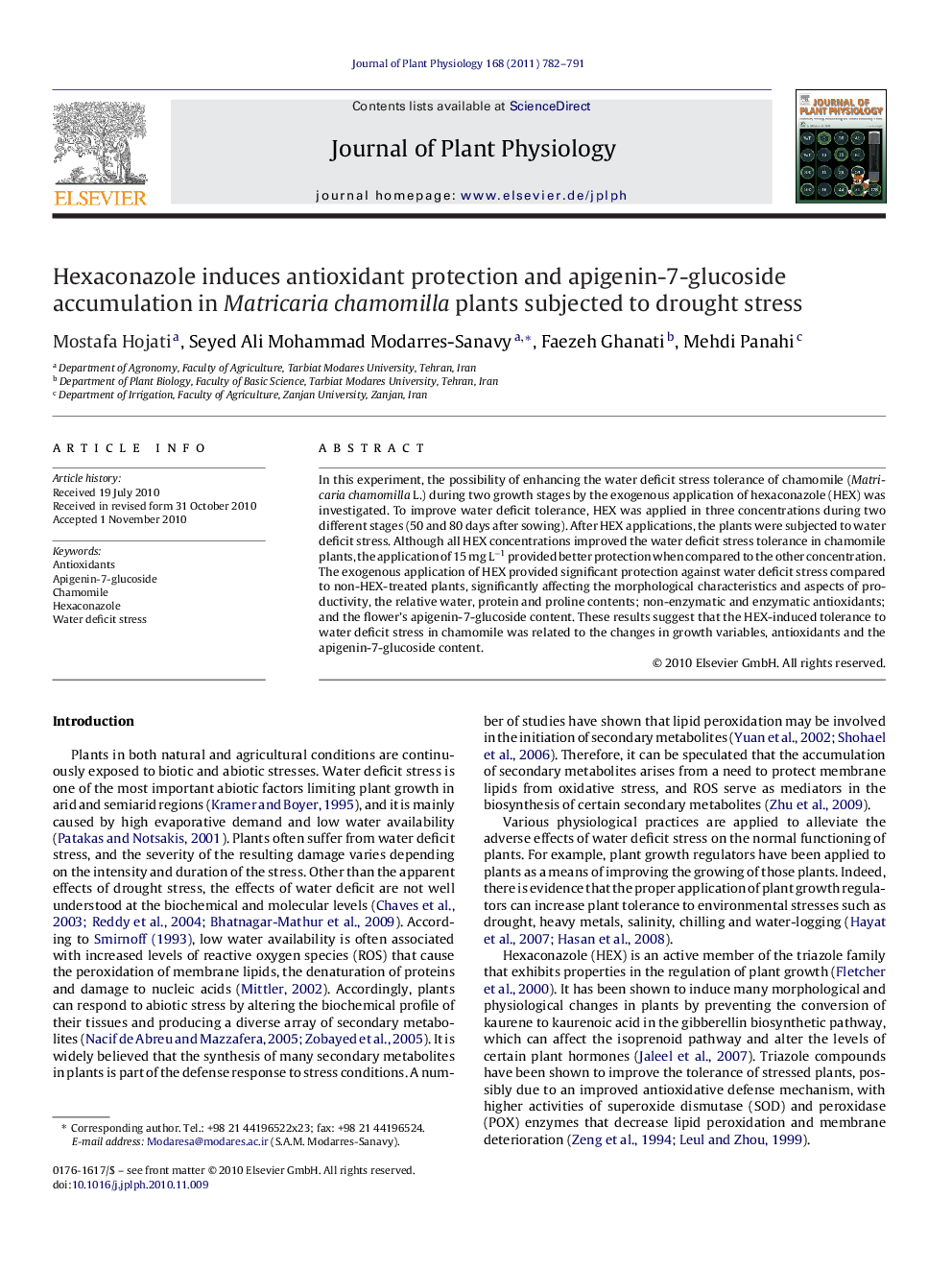| Article ID | Journal | Published Year | Pages | File Type |
|---|---|---|---|---|
| 2056642 | Journal of Plant Physiology | 2011 | 10 Pages |
In this experiment, the possibility of enhancing the water deficit stress tolerance of chamomile (Matricaria chamomilla L.) during two growth stages by the exogenous application of hexaconazole (HEX) was investigated. To improve water deficit tolerance, HEX was applied in three concentrations during two different stages (50 and 80 days after sowing). After HEX applications, the plants were subjected to water deficit stress. Although all HEX concentrations improved the water deficit stress tolerance in chamomile plants, the application of 15 mg L−1 provided better protection when compared to the other concentration. The exogenous application of HEX provided significant protection against water deficit stress compared to non-HEX-treated plants, significantly affecting the morphological characteristics and aspects of productivity, the relative water, protein and proline contents; non-enzymatic and enzymatic antioxidants; and the flower's apigenin-7-glucoside content. These results suggest that the HEX-induced tolerance to water deficit stress in chamomile was related to the changes in growth variables, antioxidants and the apigenin-7-glucoside content.
